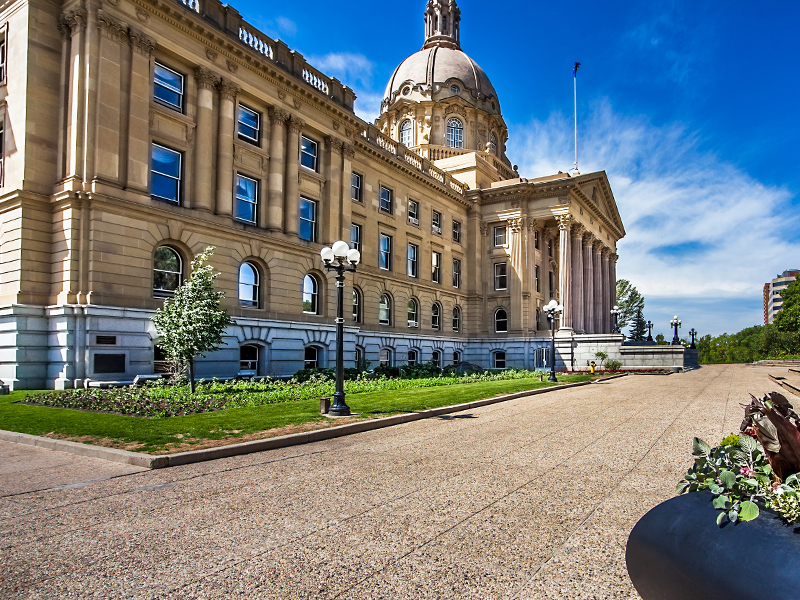
This article appears in the May 2021 issue of Investment Executive. Subscribe to the print edition, read the digital edition or read the articles online.
The Covid-19 pandemic is hitting Alberta hard. In early May, the province had the highest active case rate in Canada, with 508 cases per 100,000 people. That’s more than twice the rate of the next province on the list, the much-maligned Ontario.
Tensions are high in Alberta. Dozens of ICU doctors and nurses wrote an open letter calling for tighter restrictions on the same weekend that thousands of Albertans attended a “no lockdown rodeo” north of Calgary.
The combination of the high case rate and social division have pummelled Premier Jason Kenney’s popularity, with 75% of Albertans disapproving of the way he’s handled the pandemic, according to an Angus Reid Institute poll. That poll was from early April — about a month before Alberta’s Covid cases spiked.
Kenney also is dealing with a major split in his caucus. On April 7, one day after he imposed tighter Covid restrictions, 16 MLAs from the United Conservative Party (UCP) released a letter opposing the changes. The group — representing one-quarter of Kenney’s caucus, although none of them is from Edmonton or Calgary — includes the legislative speaker and a former minister who was removed from cabinet for travelling to Hawaii over Christmas.
Those 16 MLAs — referred to as the Covid-16 by some Albertans — represent more than just opposition to pandemic policy. The current fissure in the UCP caucus runs along the traditional fault line between former Progressive Conservatives and their more ideological counterparts who belonged to the Wildrose Party, which merged to form the UCP in 2017. Conservatives in Alberta have a particularly vivid history of breakups and mergers, and Kenney’s work to unite them in time for the previous provincial election may soon be undone.
Alberta’s economy, which was expected to be a Conservative strong suit, has shown really bad numbers. Real GDP growth in Alberta suffered a year-over-year decline of 8.2% in 2020, compared with a Canadian average drop of 5.5%. We all know Covid has been the main contributor to the economic decline — but still, Kenney has to wear it.
The bad news continues when you think ahead to the next provincial election, about two years out. A recent poll commissioned by the CBC indicated the NDP would form a majority government if an election were held today. The NDP is raising money at more than twice the rate the UCP is, having taken in almost $1.2 million in the first quarter of this year. When people open their wallets, you know they’re serious.
The only bright spots that remain for Kenney are ones he has no control over: the prices of oil and gas. West Texas Intermediate averaged US$62.33 a barrel in March, 113.4% higher than it was a year earlier. Western Canada Select, the price most Canadian producers get for their product, was at US$50.94, 297% higher than a year earlier. That US$11.39 differential is considered small. At the same time, natural gas has been hovering around C$2.50 per gigajoule, also a healthy number.
Activity in the oilpatch is picking up and the oilsands producers are making money hand over fist. Suncor Energy Inc., for example, just reported first-quarter net earnings of $821 million. Companies in the energy sector have tended to pay down debt or increase dividends rather than fund new exploration and development, but they’re in a position to invest if they choose to. Many are predicting substantial economic growth in 2021, and hiring managers are getting busier.
But even a strong economy may not be enough to save Kenney. On May 4, the premier announced another round of restrictions that are the most severe since the first wave of Covid-19 hit more than a year ago. They include the return to online classes for all grade schools and the limiting or closure of a wide array of businesses.
One can only imagine the reaction from the Covid-16 and their supporters. It’s too soon to call a political scrapper like Kenney out, but he’s definitely down.
Uncooperative co-executor passed over by court
Case illustrates the risks of appointing multiple executors